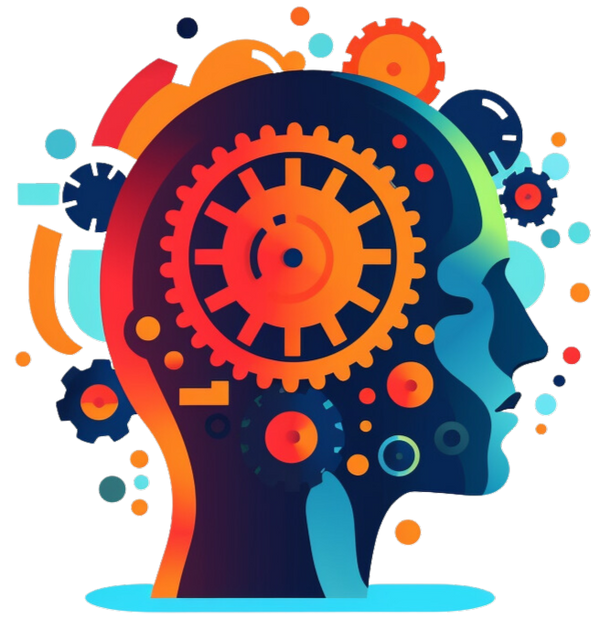
3 things you shouldn't forget if your child has ADHD
Share
Our everyday lives are often hectic enough without spontaneous tantrums. So it's no wonder that raising a child with ADHD pushes you to your limits—and beyond. However, as a parent, you should keep the following points in mind.
1. Your child's brain works differently. Period.
From a medical perspective, the case is quite clear: The ADHD brain has difficulty with the system of so-called "anterior attention" (frontal lobe), which enables consciously directed concentration. The "posterior attention" (limbic system, older parts of the brain), on the other hand, is overactivated – voluntary concentration is impaired, environmental stimuli can immediately steer one's behavior in a different direction, and violent emotional reactions are only a stone's throw away.
Why? These older parts of the brain simply always take priority over what we commonly refer to as reason/rationality. Only later does the frontal lobe add its two cents. Just imagine yourself, perhaps deeply engrossed in a book while your baby is long asleep. Now you hear a muffled cry from the nursery. Of course, you turn the page because the next chapter sounds so exciting...
You don't?
Exactly – anything else would be pretty "sick." Your brain was just functioning perfectly. Your biologically speaking, "old attention network" warned you of danger, and perhaps adrenaline is already mobilizing . The least you'll do now is listen carefully again. But you'll probably also quickly go to the children's room and check that everything's okay.
Now you know why your child with ADHD – whose posterior attentional branch is overactive – has once again been distracted by a child calling in the neighborhood – or by the bird on the windowsill. It may have been a minor irritant for you, but for your child's brain, it is of "vital interest." After all, that is precisely the job of the older parts of the brain. They don't feel particularly responsible for English words, math problems, or dictation exercises. Instead, they ensure our survival every day – through "vigilance" and, when necessary, appropriate, very rapid reactions – such as fight, flight, or freeze .

2. Your child probably suffers more from his ADHD symptoms than you do
Another mother in the neighborhood who now seems to think her child is a badly behaved hooligan. Another 60 francs because the new gym clothes found their way to school but have now disappeared without a trace. Another conversation with the teacher because your daughter absolutely refuses to participate in any "group dynamic" at school.
That's tough, no question.
And it's your perspective.
Here is a second one:
Again, that wave of anger, and then the flying hands. Now your friend Jonas is crying, even though you love him so much. And both mothers look so different. Jonas's looks cold, disgusted. His own mother looks sad.
Again, that unbearable feeling of shame, making you want to sink into the ground. The gym gear was there, then suddenly it wasn't there anymore. You have no idea where you could have left it. You think as hard as you can. But everything is simply "erased."
Again, that feeling of "too much." All the chatter, the loud noises. Sitting still is unbearable. A tugging nervousness spreads throughout my body. Now the teacher asks something else. I don't know. I just want to run away—but I'm not allowed to.
This is your child's perspective on the three situations mentioned above: tantrum, lost gym gear, group work.
Comparisons aren't necessarily necessary. Besides, suffering varies from person to person. But one thing should be clear: Your child didn't exactly enjoy a pony-stroking session at the pony farm either.

3. You and your partner make the big difference
Your child grew and matured in your womb for almost 10 months. Then it was born, with a head and a brain just like you. When you look at it, everything is there, perfect—and it's beautiful.
The only problem is: your child's brain is still completely immature at birth. And it will remain so for a long time, even if it learns new things every day at a remarkable pace . Try to teach your two-year-old self-regulation and reason – you might as well be trying to nail a pudding to the wall. Punish a five-year-old over and over again with loud scolding, withdrawal of affection, or punishments – and it will hardly learn anything except the emotional message "I'm not okay." This will then be stored really well. And in doing so, you are laying a great foundation for lifelong emotional problems or later delinquency.
What your child understands better: Emotional messages delivered calmly or firmly, clear boundaries repeatedly set (and then adhered to). A hug at the end of a tantrum that has led to many tears. Precisely formulated "if-then" statements that actually result in "if-then" actions, regardless of mom or dad's mood. And again: The feeling of being loved "despite everything." Always.
This has absolutely nothing to do with "anti-authoritarian parenting." And therefore nothing to do with "Kevin-Kenley Problemian just loves to scratch stick figures, so our car is a bit 'decorated'." No, this parenting style is called "authoritative." It combines clear rules and boundaries with plenty of love and affection. There's still a generation that (sometimes) views this approach as "dangerous," especially with boys. They believe it would soften the budding men. And boys shouldn't cry bitter tears, but pull themselves together.
First, this generation experienced dangerous and difficult times, some of them as children (the Second World War). Second, this idea has long been convincingly refuted . And third, it's easy to imagine how the self-love instilled in beloved children can easily turn from a warming gut feeling into a consuming hellfire once these children grow up—and, for example, have to defend themselves. Because love is strength.
Furthermore, authoritative parenting isn't the invention of clever psychologists who want to bring a new word into the world because they love to sound like smartasses. The proof: discipline. The word comes from "discipulus," meaning student, apprentice, disciple. Now, it's certainly possible that the 12 disciples/apostles followed Jesus Christ because he often swore loudly, slapped them, and made them feel like they weren't okay. But tradition tells us otherwise. He was respected, honored, and loved because he acted as he spoke, distributed plenty of love, and yet still set very clear boundaries . An authoritative role model, in fact.

By the advanced age of about 25, the structures in our brains are maturing , allowing us to make "rational decisions" that benefit us—and sometimes the community as well. Childhood is the most crucial time for brain maturation. And YOU are among the most important people to observe and accompany this maturation.
During childhood and adolescence, the decision is made as to whether the command center (frontal lobe) can develop sufficient structures to counter the impulses from the older brain regions ("fight!", "flight!", "freeze!") with sufficient alternative options in critical situations. Impulses that allow rational action, even though one has clearly noticed, felt, and fully appreciated one's own emotions.
This interaction, by the way, is no walk in the park throughout a lifetime. It's not for nothing that programs like "Expressing Anger," " Trauma Work ," "Finding Your Center," and "Finally Becoming Whole " are currently mushrooming. On the one hand, because more knowledge about our neural development is available. On the other, because we can actually still learn a lot well into old age and discard old, outdated patterns. New experiences like learning a foreign language, a long stay abroad, learning an instrument, etc., literally reshape our brain in certain areas (visible under a microscope).
It's actually quite incredible, because our fingers and feet barely change anymore—they just get bigger and older. But there aren't countless nerve cells connecting with each other there, so that in the end, there are about 100 trillion (one hundred thousand billion) synaptic connections.
Speaking of connection, one thing is especially important—the one with your child, whether they have ADHD or not. We hope this text has been able to contribute a little to that.
PS: The proof of Jesus & anger can be found here:
John 2:13–16:
Jesus sees the Temple in Jerusalem being turned into a marketplace. Merchants sell sacrificial animals, and money changers conduct business. Jesus makes a whip out of cords and uses it to drive the animals out of the Temple, overturns the money changers' tables, and orders the dove sellers to remove their cages.
> "He made a whip of cords and drove them all out of the temple, including the sheep and cattle. He poured out the money of the money changers and overturned the tables. He said to those selling doves, "Take these things away from here; do not make my Father's house a marketplace!"
